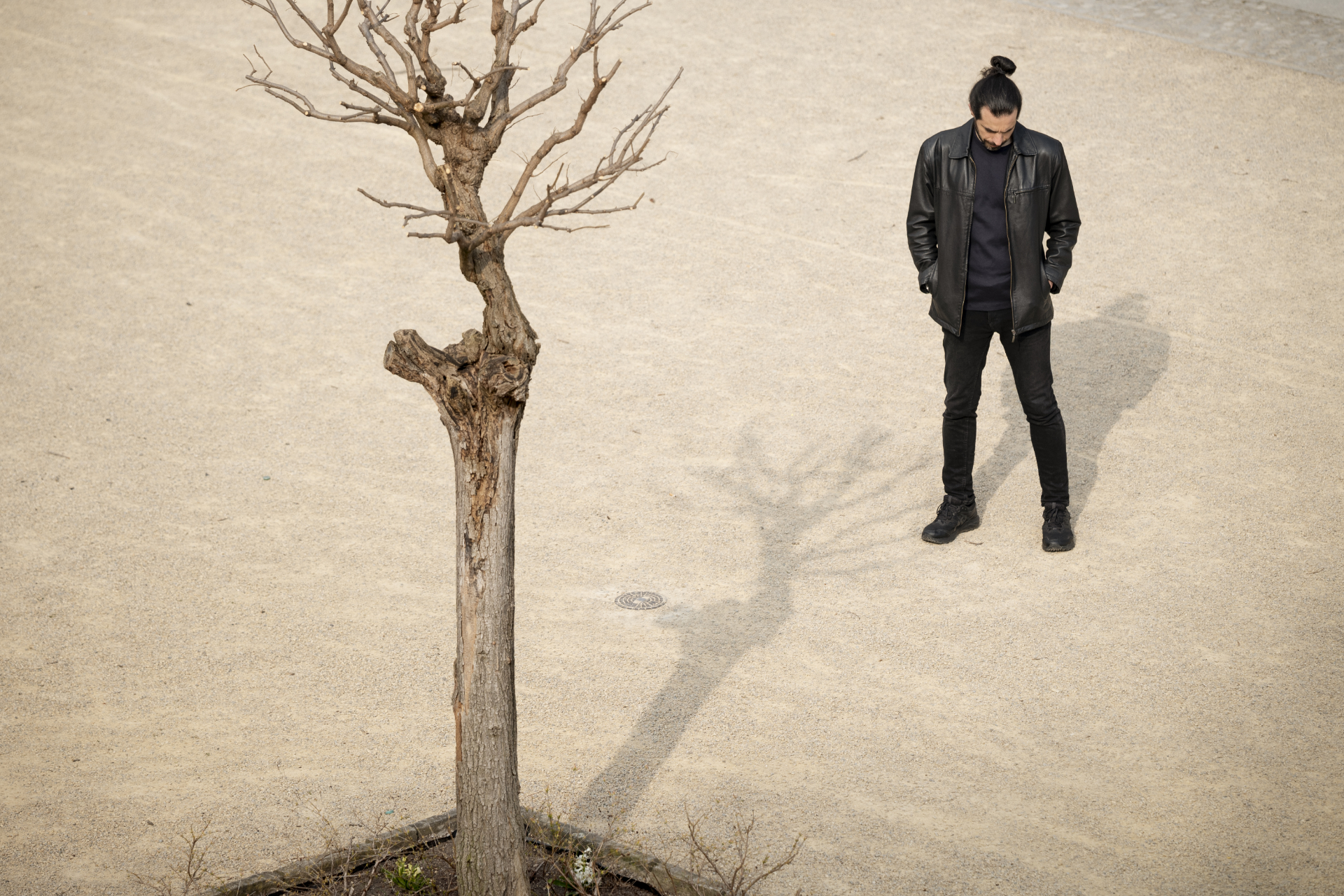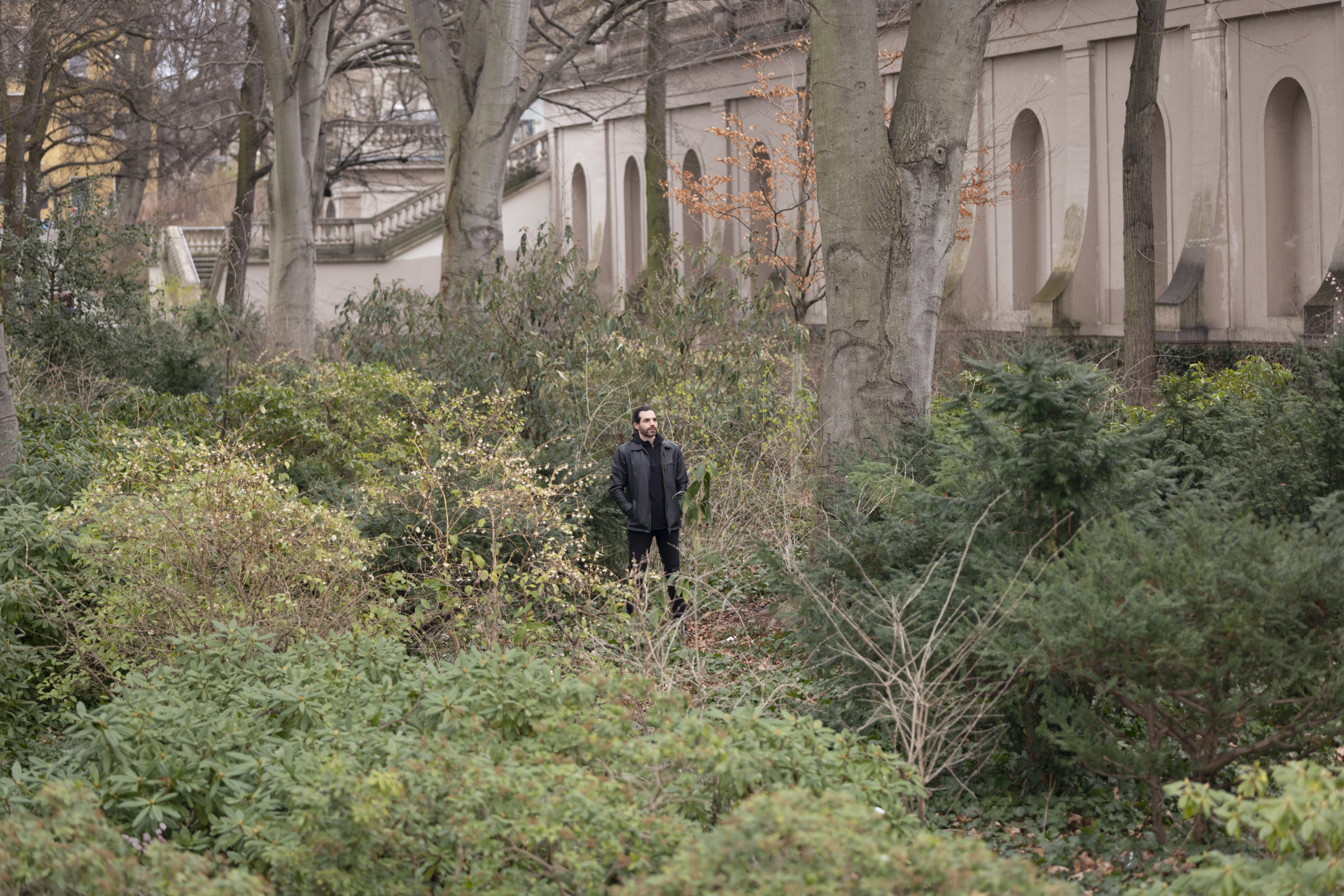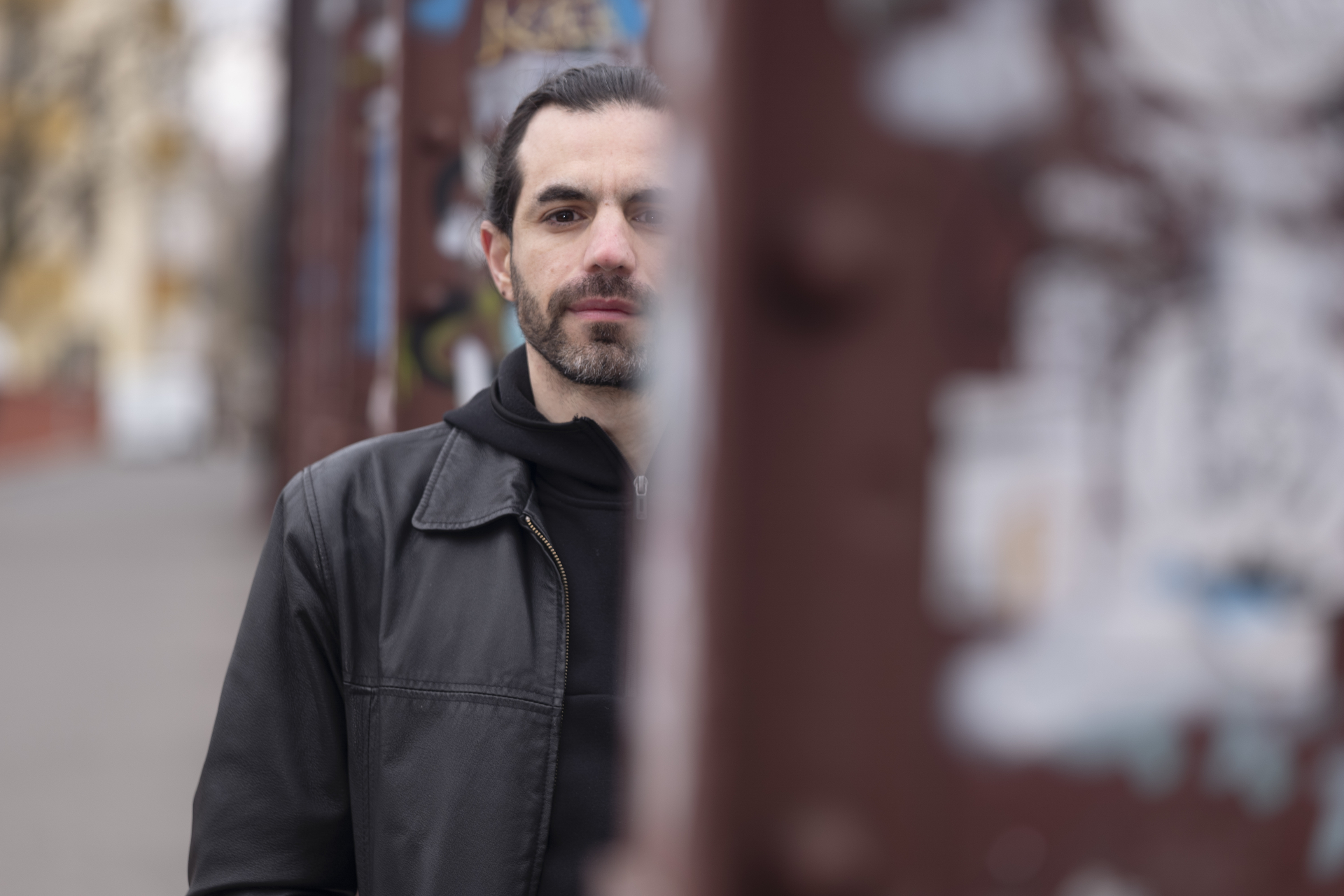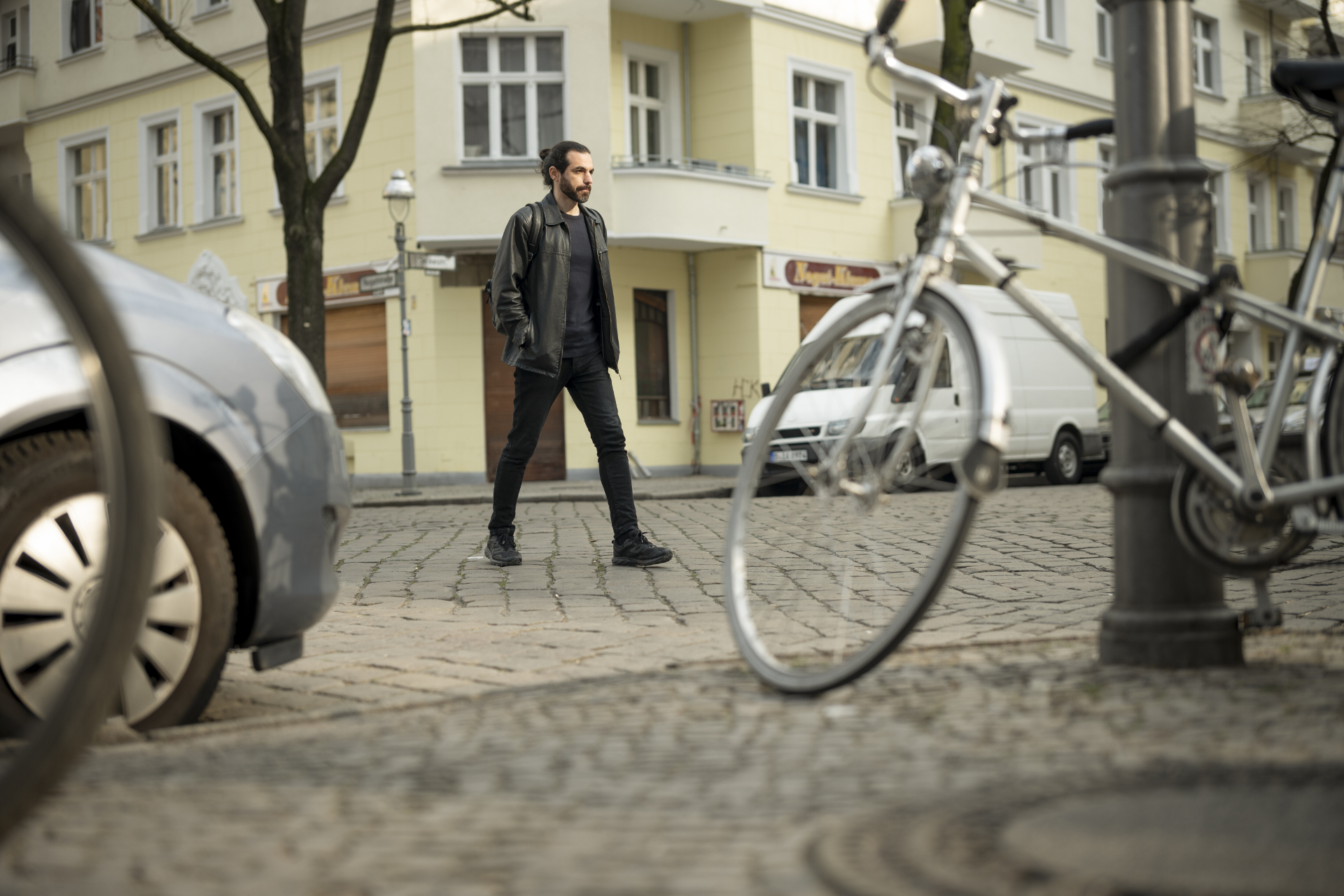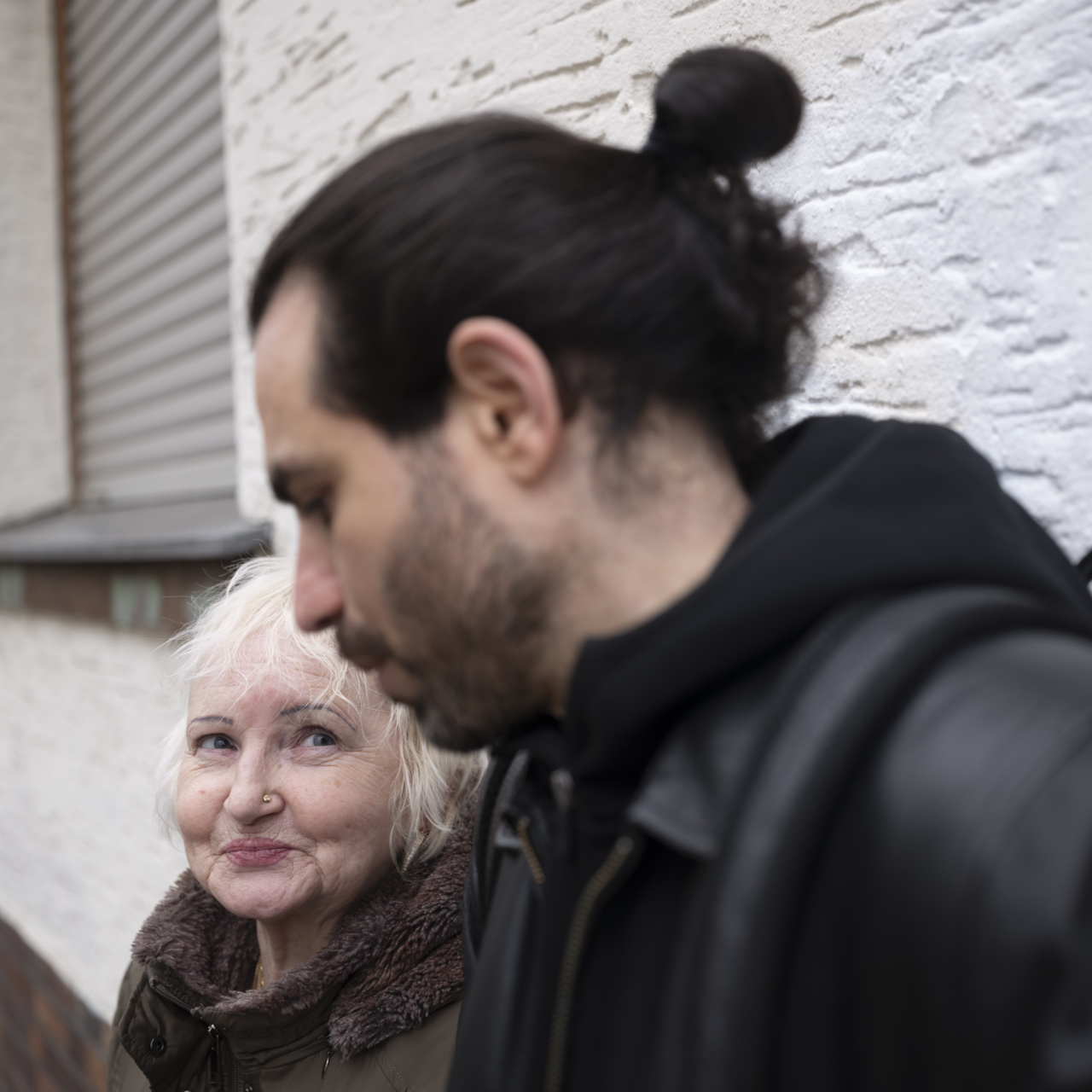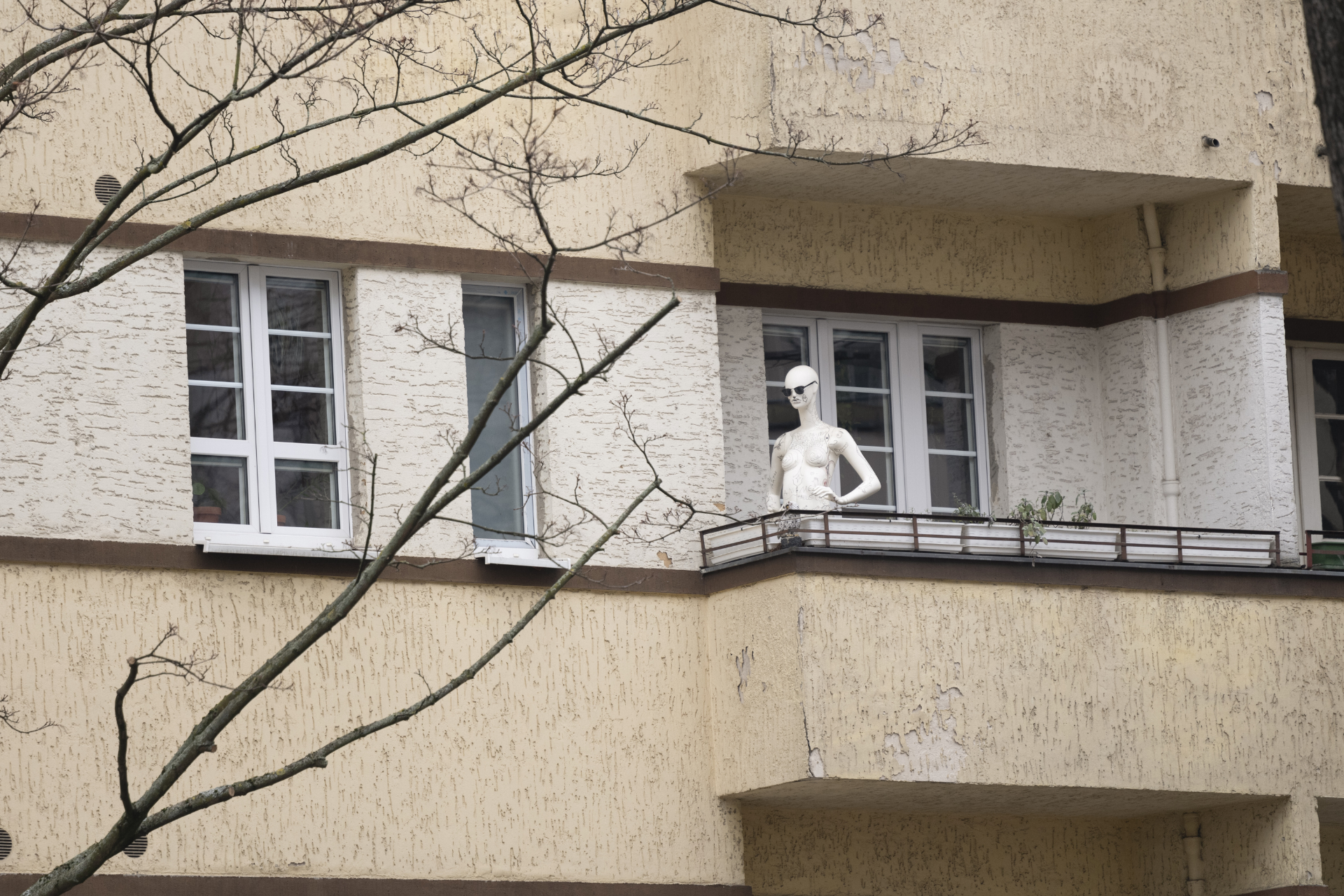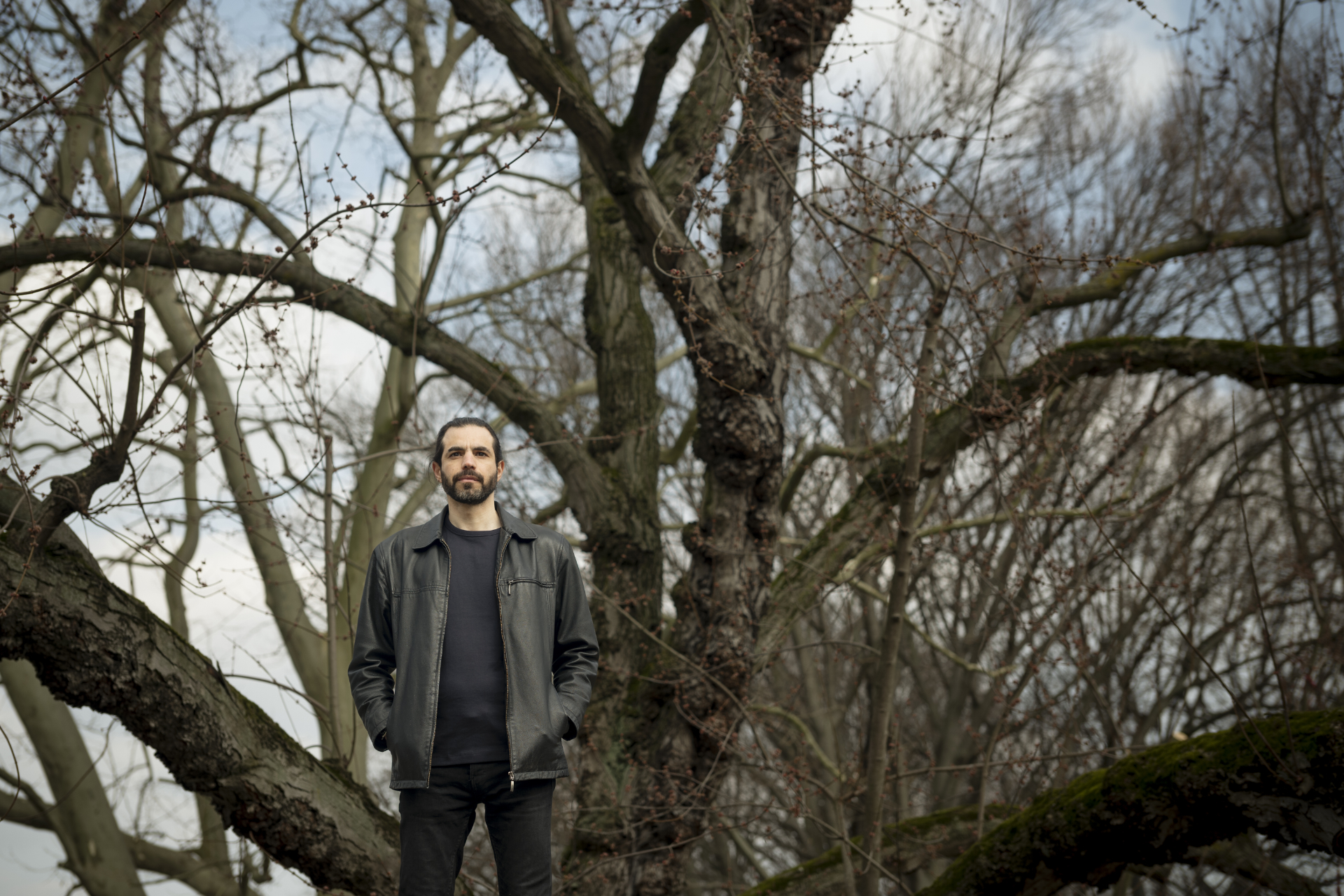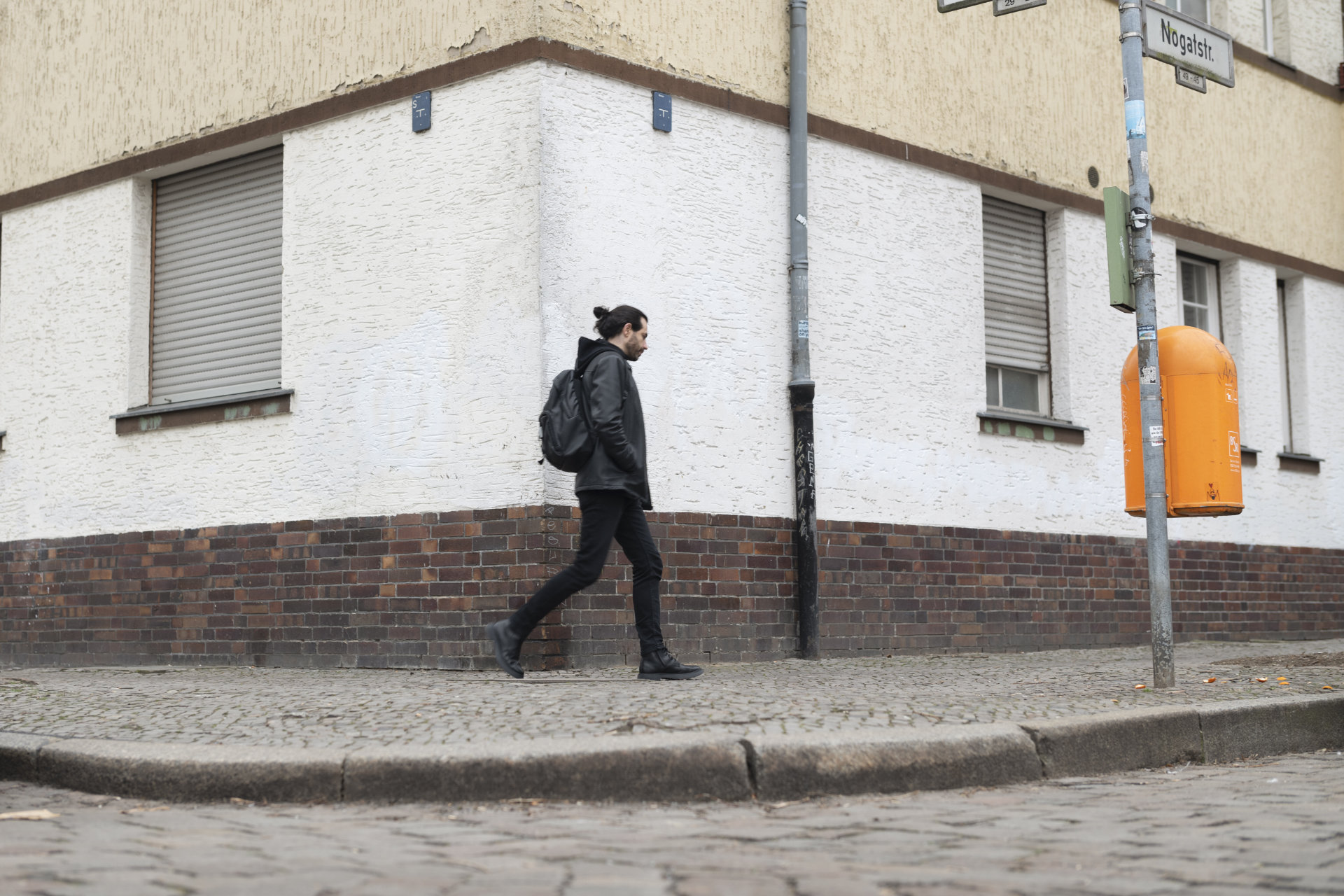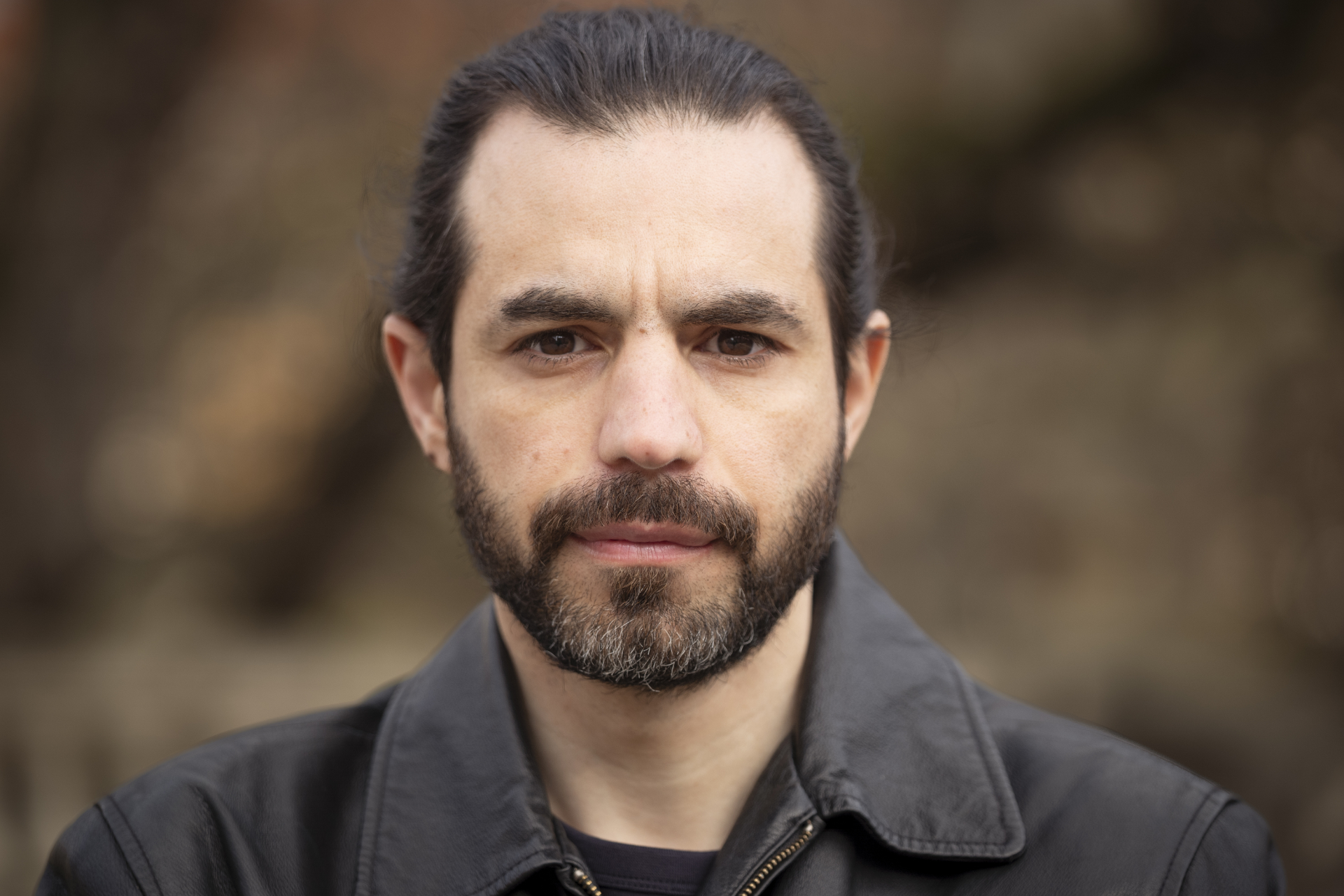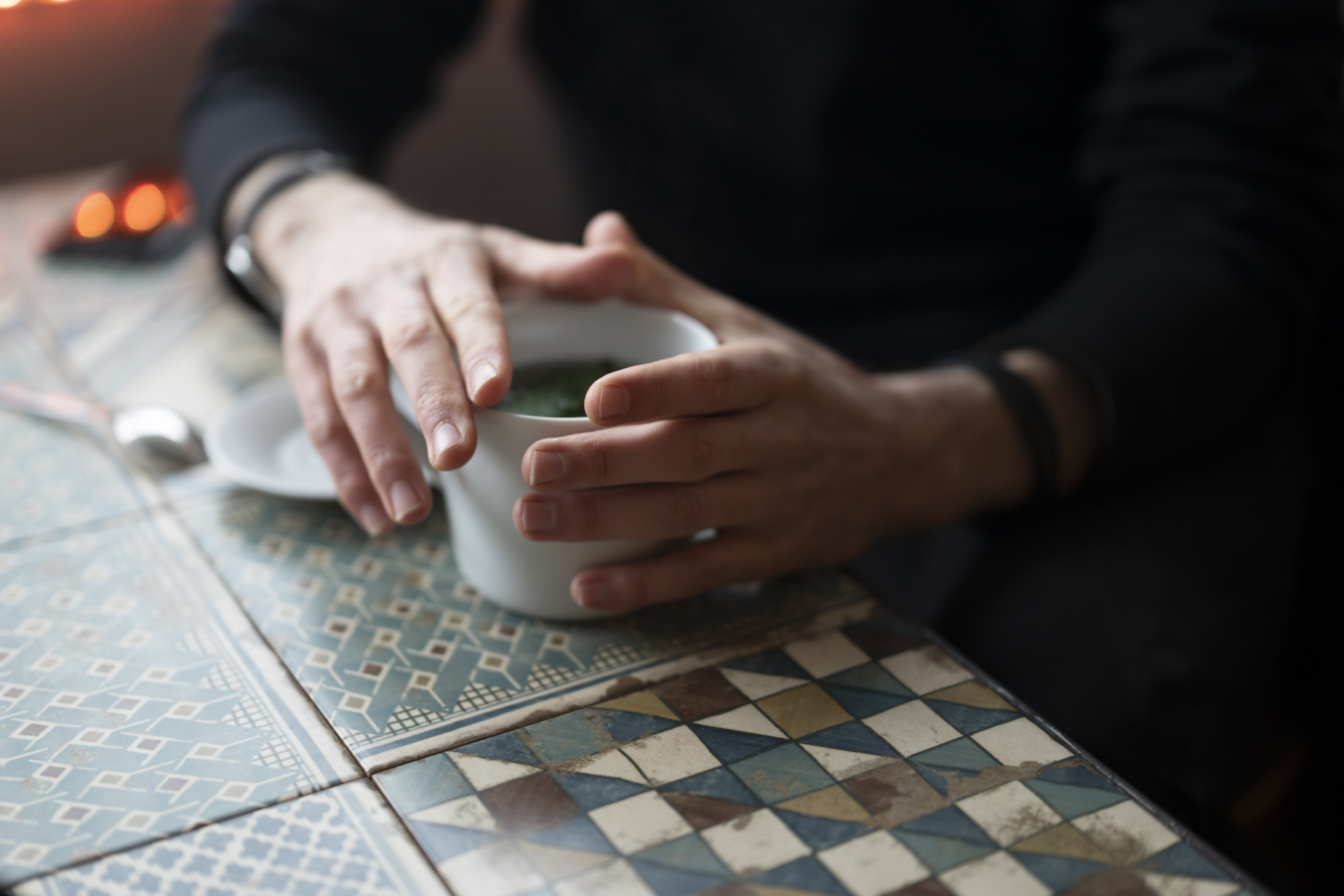Issue 17 / May 2022
Letter from Berlin
Two Neighborhoods, One City, a World Apart
March 2022
Half past four in the morning. I pack my things and walk out of my office and down the three stories of the White Villa on Wallotstrasse in Grunewald. I open the door and pause, as usual, in front of the wooden swing in the villa’s garden. I am confident that no one can see me now, but I hesitate to use it. “You should try it, at least once,” I nag at myself. I start walking towards the swing when I hear an owl’s hoot from direction of the nearby Halensee Lake. I leave the swing behind and hurry toward the sound, hoping to finally spot the owl that has proven so elusive in my nightly wanderings. The sound fades as I near the lake. Suddenly, a fox is on the path. He stops right in front of me and watches me intently. I stand very still so as not to scare him, and we stare at each other. I note his large size and good health while remembering the scrawny, limping fox that I often see near my home in Neukölln. I smile at the thought that it seems only natural that the foxes of Grunewald be in better health than their Neukölln cousins. The fox loses interest in me and walks away. I try to follow, but I lose him, and decide to sit on the wooden bench that overlooks the small lake. The cold is tolerable enough for a five-minute break before continuing to the Halensee station to catch the Ringbahn, the train line that circles around Berlin and carries me on my frequent journey all the way from Grunewald in the far southwest to the Hermannstrasse station in the southeast. I hear the owl again, this time much closer. I switch tactics: Rather than chase the sound, I will stay silently in place, should this give the owl some reassurance and encourage him to draw closer. I shut my eyes and take slow breaths. Stupor overtakes me and I doze off into a fitful sleep of intermittent images and strange sounds. I am awakened abruptly by the blaring of the alarm clock. In panic, I open my eyes to find myself lying on a narrow bed. I stare briefly at the high ceiling. Half past four in the morning, March 19th. I got thirty minutes of sleep. The driver will be here shortly to take me to Beirut Airport. The full moon’s glare is trickling through the window of the apartment, in a building adjacent to the old lighthouse in the neighborhood of Ras Beirut. I rise and go out on the balcony. All is inundated in the pale silver reflection of a moon cradled by the sea. Quite the farewell then, Beirut! Only now do I regret leaving, when yesterday I longed only to return to Berlin. Eleven days in a Beirut mired in its own misery had left me in despair. Now, suddenly, I feel like I just got here, and I do not want to leave. The driver arrives five minutes early. I request he take the sea route to the airport. Along the way, I ask him to stop on the hill that overlooks the beach in Ramlet el-Baida. I get out of the car to witness the moon diffusing itself over a city engulfed in deep darkness. After what seems like a few minutes, I hear the driver joke: “All that’s missing is a cup of coffee.” “I don’t drink it,” I say, returning to the car. In his relentless attempt to break the silence of the airport road, the driver asks, “Where are you traveling?” I hesitate briefly: “I am returning… to Neukölln.” “Where is that?” he asks, his curiosity piqued. “Germany,” I reply, failing to assuage. “What brings you there?” he persists. “A home,” I answer.
Neukölln – Winter 2016
I want to invent a story for myself ...
And learn to bear a harsh sight,
A brusque shout, a sour smell
- Damiel in Wim Wenders’ Wings of Desire (Der Himmel über Berlin), 1988 -
I arrived in Berlin exhausted, disoriented, and utterly resigned to a fate I had no hand in. The address was written on a piece of paper, folded carefully in my pocket: Weichselstrasse 38. A friend came to pick me up from Tegel Airport. I was so grateful she had made the effort that I tried to force a smile. The whole way from the airport to the address in the north of Neukölln, she refrained from asking the question that was hanging in the air, and to which I had no answer: “Why did they expel you from Beirut?” We arrived at the address that would be my home for the next two years, and my friend insisted on helping me with anything else I might need before leaving. Thanking her, I said I was exhausted and only needed some sleep. Yet minutes after she had gone, I was out the door. I needed to explore the neighborhood and wandered without a destination, quickly discovering I was close to Sonnenallee, a street teeming with Arab shops and grocery stores. Crossing the street, I found myself on the bustling Karl-Marx-Strasse, where a quick scan reassured me that I would not be missing Syrian, Lebanese, or Turkish food. I turned back towards my place and kept going past it, ending up on a small bridge by the name of Lohmühlenbrücke that separates the three districts of Neukölln, Kreuzberg, and Treptow, and is pierced by a canal running north. It was almost nightfall. A flock of white swans gathered beautifully on the water at the foot of the bridge. I approached them to catch a better view, while young people sat in scattered groups on either bank near the bridge, talking, smoking, and drinking. As I contemplated the water from the west end of the bridge, a perplexing sense of familiarity washed over me. I felt I had been here before, on this very spot, staring at this water. But something was missing. I turned north, and then it came to me: The Wall once cut through here! I am flooded now with crystal-clear images from Wim Wenders’ Wings of Desire (Der Himmel über Berlin), which I had just rewatched for the third time a few days ago in preparation for my exile in Berlin. The angels, Damiel (Bruno Ganz) and Cassiel (Otto Sander), are standing on this very spot. In the scene, Cassiel asks his friend if he is still determined to undergo the transformation from angel to mortal. “Yes,” comes the answer, “I want to invent a story for myself… and learn to bear a harsh sight, a brusque shout, a sour smell.” Then the two angels break through the wall that once split the city in two, vanishing behind it. There is no wall here today, but Bruno Ganz’s words reverberate in my head. I realize I don’t know which story I want to invent for myself here! Yet I know that in this spot, where the angel became a mortal in Wenders’ film, I became a refugee, an exile, a stranger! I was still staring into the water running through the canal when it got dark. I decided I would spend my first night in the city continuing to amble around the new neighborhood. From that moment, and in the six years that followed, the streets, gardens, and cemeteries of Neukölln mapped my frequent nighttime wanderings. I came to memorize the neighborhood’s details, got to know its drunks, its homeless people, and its addicts. Slowly but surely, the neighborhood to which I had been banished by force became a home that I invented by choice.
Grunewald – September 2021
In September I began my fellowship at the Wissenschaftskolleg zu Berlin, located in the affluent Grunewald district in the western part of the city. In my time at this prestigious institution, I would meet colleagues from all over the world: academics of all kinds – historians, biologists, epidemiologists, philosophers, sociologists, visual artists, and musicians. At every meeting, lecture, meal, or social gathering, I learned much from them and their respective fields. As part of the fellowship, I was granted access to a small, tidy office on the top floor of the White Villa, which sits opposite the institute’s main building. Unlike my colleagues, I didn’t reside in Grunewald, commuting instead to my office, often at night, without witnesses to my comings and goings. Somehow, without premeditation or design, I came to relate to Grunewald as a visitor in disguise, frightened to be seen there. It is not that I don’t like the place; I really do. I am simply afraid of staying too long. I think I fear growing used to all this luxury and tranquility! Since my arrival in Berlin in 2016, I have moved three times, and insisted on living in Neukölln each time. In my most recent hunt for housing, I avoided the “revitalized” parts of the neighborhood where hipster cafes, organic shops, and designer studios abound. I was fortunate to find my current place at the end of Hermannstrasse, on the border of Britz, not far from the Neukölln station to the east and the outskirts of the old Tempelhof Airport to the west. It is an area where lower-class and low middle-class Germans coexist with those of immigrant origin, especially Turks, Lebanese, and Palestinians. It is known as a poor area, but also as one where the clan-affiliated gangs that monopolize the world of organized crime operate – though that part is not as visible. What is more conspicuous is the neighborhood’s relative poverty compared to other parts of Berlin, the large number of residents who are homeless, alcoholics, addicted to heroin, or selling it, and how they coexist with patrons of the bars and restaurants that stay open late into the night, even on weekdays. Bustle and squalor, against the unmitigated calm and remarkable cleanliness of Grunewald. Some friends have asked why I insist on living in Neukölln. For me, it is simple: I want to live in a place that reminds me constantly and simultaneously of the beauty and harshness of life, of the fragility of its people, their misery and kindness – a place that recalls the imbalance, or even impossibility, of justice. Neukölln keeps me in touch – if only through my imagination – with a world I was forced to leave behind, a world where people are crushed by deprivation in endlessly withering cities. Naturally, Neukölln is not a suburb of Damascus or any other Syrian city. Far from it. Syria has even worse levels of poverty, destitution, and unemployment that are also tinged with oppression and fear. Still, my nightly wanderings through Neukölln, my encounters with the neighborhood’s homeless and addicts, keep me somewhat balanced. They revert me to a contemplation of a monstrous world that still manages to have hidden pockets of beauty, sprinkled here and there. My nightly wanderings in Grunewald, on the other hand, rouse in me a different kind of melancholy. The silent, deserted streets dotted with palaces, luxurious villas, and immaculate gardens; the lights filtered through windows behind fences… they fill me with a sadness whose origin I cannot trace. It is an ever-increasing loneliness, a confusing vacillation between fear and pleasure that I find disorienting as I reflect on it during my trips back to Neukölln. There, I rarely manage to exit the Neukölln or Hermannstrasse stations without encountering one of the neighborhood’s homeless residents. We have built a rapport and have an understanding: I will not give him money to be used for more alcohol or heroin, but a meal or a cup of tea is always on offer. I especially enjoy running into Abbas, a young man from southern Lebanon. I do not know if he has been diagnosed with a specific mental condition, but I know he hears voices in his head and speaks to himself aloud. Every time he sees me, he approaches me with a smile, even if a meal isn’t on his mind. Every time, he persists in recounting his story as if we had never met, as if it were my first time hearing it. With every narration, he unveils the big revelation as if it were the premiere. His unfading passion leaves me no choice but to listen each time as if it really were my very first time. I admire his beautiful facial features as he replays the details I have memorized by now. I don’t interrupt, waiting until the end before taking leave. For me, Abbas embodies the story Syrians tell about their country. They believed that if they spoke, someone would care. So they spoke. Over and over. Each time impelled by enthusiasm, fervor, or sheer need. They retold and rehashed, conveying what was happening, warning of what was to come. But no one listened. Unlike Abbas’ inexhaustible zeal for storytelling, my words about Syria have dried up in recent years. Writing about Syria – writing in general – has become an exacting task, when I was once impassioned about writing, blogging, and narrating. In recent years I find myself resorting to silence whenever I consider talking about Syria. Every attempt falls silent. Sometimes, while standing next to me, Abbas notices my long silence. He wants to make sure I am still listening. He becomes especially animated when he arrives at his last days in Beirut, when he recounts his escape from death, how he almost drowned on a swim after hitting his head on a rock. “I started to slip away, slowly, the water around me disappeared, all that was left was a bright flash and it was consuming me. I was happy. I didn’t want to come back… I wish they hadn’t pulled me out. I wish I had died in Beirut.”
Beirut – March 2022
“Whenever Zachariah went in to see her in her sanctuary, he found her supplied with provisions. He said, ‘Mary, how is it you have these provisions?’ and she said, ‘They are from God: God provides limitlessly for whomever He will.’”
- The Qur’an, 3:37, translated by M. A. S. Abdel Haleem, 2004 -
I turn my eyes to a wall of the damp, dilapidated room, as Umm Ahmad places bowls of fruit next to the plates of sweets. Her husband Abu Ahmad beckons me to eat, warning me that I better come on an empty stomach next time, or I am not invited. I nod, eyeing the abundant plates lined up neatly on the plastic table. Abu Ahmad’s family was forced to flee their home on the outskirts of Aleppo. I got to know this Syrian family when I still lived in Beirut, during a project I worked on in Shatila camp, one of the largest and most impoverished Palestinian refugee camps in Lebanon. Some of their neighbors have joined us this evening as we gather around the glimmer of a few candles, rain pouring outside. Umm Ahmad sighs, “By God, no one feels for them like we do.” She means the Ukrainian refugees who are fleeing their country in wake of the Russian invasion. The war in Ukraine is very real to us in that small room in Shatila camp, on yet another night without electricity, as another storm hits Beirut. Everyone agrees with Umm Ahmad. They turn to me, expecting to hear more about the war in Europe, where I now live. But a tightening in my chest keeps my answers brief, and I use my next appointment as a chance to excuse myself. As I’m leaving, Abu Ahmad and Umm Ahmad make me promise I will visit again before departing Beirut. I summon that magical word, “Inshallah,” then make my way to the alley now flooded in rainwater. Nothing has changed in the camp since I left Beirut over six years ago. Time does not come to a stop here. Rather, it moves backward, crushing the camp’s residents, then hurling them into an abyss of want and oblivion. I leave the camp in the direction of Tariq el-Jdideh, a neighborhood I lived in when I first arrived in Beirut from Damascus. My feet tread paths that are familiar, but now worse for wear. The city is under a blackout, there is electricity only an hour a day. Otherwise, you have to rely on privately owned generators – which, if you are poor, means you might be able to afford no more than two or three hours a day. My nightly wanderings on this short visit to Beirut demand that I keep my eyes on the ground and its ubiquitous potholes. Eleven days. That is all I have to see my mother and brother after a long separation. We’re here for an incomplete family reunion; the rest of the family couldn’t make it. Eleven days to try and answer the question: What happened to Beirut in recent years? I pass by all the places I lived, walk through streets that have since been abandoned by their former residents, stand in front of the shuttered doors of all the shops, restaurants, and bars I assumed I would revisit one day. To continue all those conversations cut short, to embark on all the others waiting to begin. Before Beirut, I had not experienced what it means for cities to disintegrate slowly. I left Damascus before the war changed it, accessing it only through photos and videos, and through the lens of those family members who stayed. In Beirut, I felt what it means for life to drain from a city, for hope to dry up in the eyes of its people. From Tariq el-Jdideh – now that the rain has stopped – I keep moving, towards the Cola Bridge and onto Jnah, through Ramlet el-Baida, and take the sea route to Ras Beirut. The roads are deserted on this long night. In Ras Beirut, I make a stop at the old building that housed me the longest in this city. My place was on the ninth and topmost floor, its eastern balcony facing one end of Hamra Street, its western balcony affording a narrow view of the sea. I am standing by the old lilac tree, observing the glow from the western balcony and wondering whether to ring the doorbell. The idea is simply to introduce myself: “I lived here six years ago, could I have a look around?” I decide against it but keep looking up, fantasizing about my unfinished life. What if I had stayed in Beirut, stayed in this house? I browse through the images and words of my life that wasn’t: the love interrupted; the friendships dispersed. From here, my other life, the one shared by Neukölln and Grunewald, seems like a parallel reality, the life of someone I barely know. I sink into this reverie before I am pulled out by an SMS from my brother. “You’ve been gone long. Where are you?” Amid scattered thoughts, I make my way to the hotel.
On the penultimate night of my brief visit to Beirut, I stayed up late in the hotel room with my mother and brother. In the short time we had together, and through an elaborately improvised dance, we were all careful not to display too much emotion. We have grown adept at dodging conversations that come with baggage we cannot carry. Many hours were spent in our hotel room glued to the horrors of the invasion of Ukraine – déjà vu for three Syrians separated by a brutal war in their own country. When the anxiety of having to say goodbye reared its head, we huddled back to the television, to the breaking news on Ukraine. Just before dawn, my brother and mother had fallen asleep in their seats. I watch my mother asleep on the sofa. There is more gray in her hair, more fatigue in her face, in the many years I have been away from her. Then, without warning, the questions stab like a knife: “Where did the last ten years go? Who stole them from us?” I walk over to my sleeping mother, touch her head gently to adjust her sleeping position, to ease her neck. I mean to whisper in her ear: “Better days are coming, there will be many visits, maybe we will live closer to one another.” But I stop myself. I follow her steady breathing, then step away. I open the door very carefully, ready to be swallowed back up by the pitch-blackness of Beirut’s alleys.
Insomnia – April 2022
You won’t find a new country, won’t find another shore.
This city will always pursue you.
You’ll walk the same streets, grow old
in the same neighborhoods, turn gray in these same houses.
You’ll always end up in this city. Don’t hope for things elsewhere:
there’s no ship for you, there’s no road.
- Constantine P. Cavafy, “The City,” translated by Edmund Keeley and Philip Sherrard, 1975 -
Since my return from Beirut, I feel a strange lightness. It helps me sidestep the heaps of anger and frustration I have accumulated in viewing Ukraine’s destroyed cities and fleeing refugees. The first signs of the Berlin spring help as well: the freshly blooming flowers that frame the wooden swing in the White Villa’s garden. I feel calm now in Grunewald. I am enveloped by the kindness of my Wiko colleagues, absorbed in hiking the trails of the nearby woods. But none of it is any use in overcoming the intensifying bouts of insomnia – my frequent visitor in Berlin. Whenever I feel that the insomnia has finally fled, it returns with a vengeance. I have grown accustomed to its presence, have learned that resistance is counterproductive. And because we have become close companions, I prefer its company in Neukölln where we have shared some long nights. I usually leave my office in Grunewald an hour before public transport ceases for the night. This gives me time to savor the serenity on the walk to the Halensee station, where I catch the train to Neukölln. Grunewald and Neukölln are approximately fifteen kilometers apart. Grunewald and Damascus are separated by 3,266 kilometers; Grunewald and Beirut are separated by 3,266 kilometers as well. I like to imagine the night train passing Neukölln and continuing its way south, to Damascus, then to Beirut, untroubled by any borders. Along the trip, I might pick up the books I left behind in every city, the photographs and scraps of paper. From the train window, I take in the different neighborhoods I lived in, the faces I once knew. Neighborhoods in the dark, neighborhoods deserted, neighborhoods brimming with life. Deadened faces, pale faces, smiling faces. They wave at me, some with a reproach, others with joy. I am glued to the train window, eyes wide open, absorbing it all. Yet I am still standing on the Halensee station’s platform as the last train arrives and I get aboard. As usual at this hour, the train cars are almost empty. I relish studying the countenance of the last passengers, spinning stories about them in my head. Young people on a night out, workers exhausted from a long day, the drunk and the homeless. Most of the riders of the last train travel solo in silence. I muse over rising from my seat and proclaiming loudly that everyone is invited to my small place, for a drink or dinner… because we should get to know each other and laugh together, because it is a shame for them to go to sleep heavy with worry. I have never done it, of course. When the train pulls into Tempelhof, I can sense home. After this stop, the train travels a relatively long distance in total darkness through the area that comprises the old Tempelhof Airport, now transformed into an enormous, open green space. These are my favorite minutes of the trip. From the window, I gaze out onto the vast, shadowy field until a glimmer materializes from the Hermannstrasse station, my stop. I get off the train, scanning for familiar faces. At this hour, the station’s workers kick the homeless out before closing the station. I see Abbas at a distance and call out to him. He hurries toward me. I invite him to have a bite with me and he accepts. We leave from the northern exit of the station to an all-night bakery. I tell Abbas to order whatever he wants, along with a cup of tea of course. Abbas likes adding tea to his milk. I keep count as he adds six or seven sugar cubes and stop him before the cardboard cup overflows. He gleefully stirs his tea as we leave the bakery. I tell him we’re going somewhere nearby to eat; he grumbles, he would rather sit down right away. But he follows. We walk north towards the Leinestrasse station and enter an ill-lit park that separates Hermannstrasse from the old Tempelhof Airport. There, in this park by the small cemetery, I occasionally encounter owls when I’m in luck. I can hear them now, so I ask Abbas to stop talking and listen. I succeed for only a second. When I’ve lost all hope of persuading him to be quiet, we continue to the end of the garden where there is a side entrance to Tempelhof, though it is closed at night. We sit on a bench on a slightly raised perch over the limitless field. There’s a bit of light on the horizon. Whenever I sit here, I imagine I’m on a seashore at night, beholding the glint of a nearby beach or island. “Doesn’t it resemble the sea of Beirut?” I ask Abbas. He laughs, “You’re nuts.” “Tell me, Abbas, why did you come here?” I ask. Without pause, Abbas embarks on the story I know by heart. I can feel the cold air, but the steam still rises from the cup of tea in my hands. I think I hear a faraway nightingale, but could I be imagining it? It is almost their time in Berlin. A few thick clouds adorn the sky, sometimes obscuring the crescent moon but not the radiant stars. I concentrate on the faraway brilliance at the end of the field, while Abbas’ voice flows continuously. He speaks of the split second that separated him from a desirable death in the depths of a warm sea, of the cruel, distant country that rejected him even though he loved it. Of a new country that will never be his.
Translation from Arabic by Julia Choucair Vizoso.
More on: Mohammad Al Attar
Images: © Maurice Weiss
